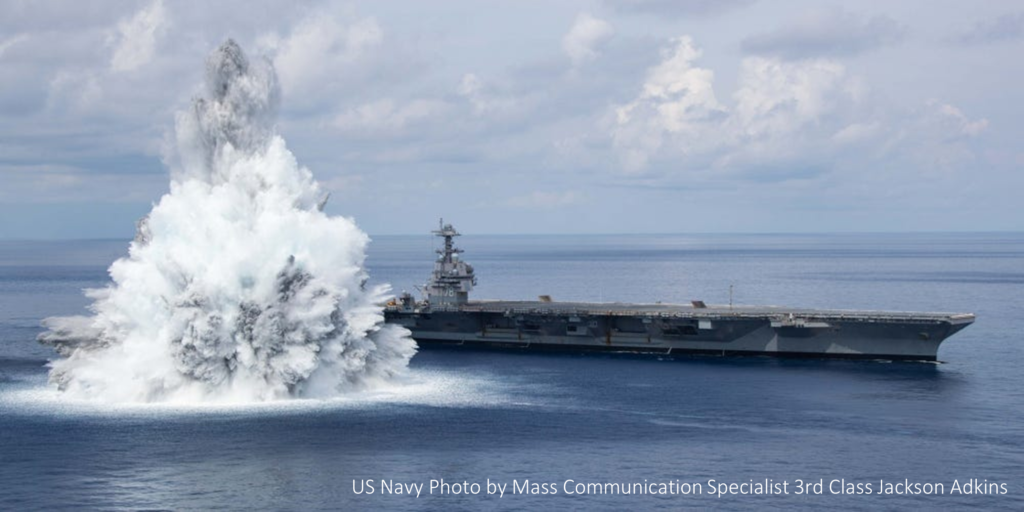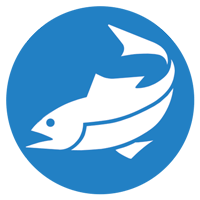
During this summer, the U.S. Navy completed three explosive events as part of the Full Ship Shock Trials (FSST) of the USS Gerald R. Ford (CVN 78), the newest and most advanced aircraft carrier in the U.S. Navy.
The Navy uses these tests on new ship designs to confirm that they can continue to meet demanding mission requirements under harsh conditions that they may encounter during battle.
Under subcontract to HDR Environmental, Operations and Construction, Inc., Azura provided aerial and shipboard observers as part of an elite team of protected species specialists tasked with protecting marine mammals and sea turtles during the trials. The team searched for whales, dolphins, manatees, and sea turtles in the shock area before, during, and after each detonation event. The goal of these aerial and shipboard surveys was to make sure that none of these animals were in the shock area prior to these detonation events and to search for any potentially injured animals after the events.
Check out these videos for more information about the trials and the Navy’s environmental protection protocols implemented during the trials.

